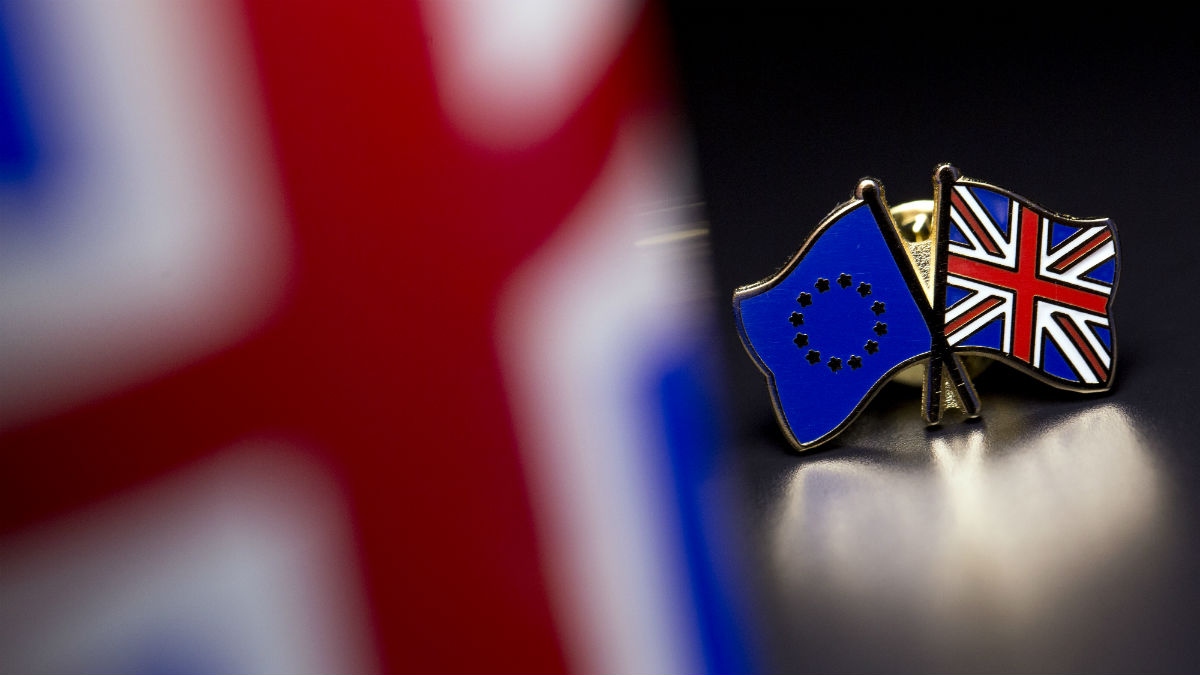EU referendum: The date, the facts and the latest Brexit odds
With two weeks to go before the nation votes, here are the details you need to know

A free daily email with the biggest news stories of the day – and the best features from TheWeek.com
You are now subscribed
Your newsletter sign-up was successful
Voting on the EU referendum is now just a fortnight away and the opposing campaigns are becoming more ferocious by the day.
Both Remain and Leave have issued warnings on national security, the economy and trade, but hard facts are few and far between as nobody can be completely sure what would happen if the UK was to leave the bloc.
Here is what we do know about the upcoming vote:
The Week
Escape your echo chamber. Get the facts behind the news, plus analysis from multiple perspectives.

Sign up for The Week's Free Newsletters
From our morning news briefing to a weekly Good News Newsletter, get the best of The Week delivered directly to your inbox.
From our morning news briefing to a weekly Good News Newsletter, get the best of The Week delivered directly to your inbox.
When will the EU referendum be held?
Thursday 23 June 2016.
What will the referendum ask?
The Conservatives originally recommended that the question should be: "Do you think that the United Kingdom should remain a member of the European Union?" However, the government bowed to pressure from the Electoral Commission after concerns that the phrasing might be seen as biased towards those campaigning to stay in and the wording is now: "Should the United Kingdom remain a member of the European Union or leave the European Union?"
A free daily email with the biggest news stories of the day – and the best features from TheWeek.com
Who can vote in the EU referendum?
Eligibility will be based on the criteria for voting in a general election, which means citizens of most EU countries (who can vote in local and European elections) will not be allowed to take part. Anyone over the age of 18 who falls into one of the following groups can cast a vote:
- British citizens resident in the UK
- British citizens resident overseas for less than 15 years
- Citizens of Ireland, Malta and Cyprus resident in the UK
- Commonwealth citizens resident in the UK
- Commonwealth citizens resident in Gibraltar
However, citizens of Jersey, Guernsey and the Isle of Man, which are not in the EU, will not take part.
Members of the House of Lords will be allowed to vote, despite being ineligible to cast a ballot at general elections.
The High Court recently quashed a legal challenge to the rule that prohibits Britons who have lived abroad for in excess of 15 years from voting, stopping more than 700,000 ex-pats from having a say. The challengers have vowed to appeal, arguing that the referendum result will have a "very real effect" on their lives.
If you haven't registered to vote, there is still time. The official deadline was at 11.59pm on Tuesday 7 June, but after the registration website crashed just before the cut-off point, the government extended the deadline to 11.59pm on Thursday 9 June. Here's how to register.
What would happen if the vote was held tomorrow?
The latest poll of polls, carried out by NatCen Social Research, shows that 51 per cent of voters want to stay in the EU and 49 per cent want to leave – suggesting no Brexit if a vote were held tomorrow. The comprehensive survey is based on the average of the six most recent polls. However, it does not take "Don't knows" into account and, on average, the undecideds are about 12.5 per cent of voters, according to the latest surveys. Their vote and the final turnout will be crucial.
Two polls carried out last week put Leave ahead of Remain, including - for the first time - a telephone survey, which caused the pound to plummet. Phone polls have typically favoured Remain in the past. Nevertheless, the pro-EU camp will likely be encouraged that more people are intending to vote than expected. Polling data has shown that Brexiters are more likely to turn up and vote on 23 June than those who support the status quo.
Can we trust the polls?
After last year's general election campaign – in which the opinion polls were very consistent and very wrong – many onlookers are approaching the figures they give with some scepticism. Doubts about their accuracy have been amplified by sharp differences in the outcomes they have predicted: from a 26-point lead for Remain last December to a nine-point advantage for Leave two months later.
What are the odds of Brexit?
Bookies had been unanimously siding with Remain, but the odds are starting to narrow. In response to the two polls putting Leave in front, bets on Brexit have been repriced. The majority of punters also appear to be backing Out, another reason why bookies might have started feeling nervous. For example, Coral is offering odds of 1-3 for Remain and 12-5 for Leave, after 90 per cent of bets in recent days were placed on Brexit.
Who is campaigning on either side?
Out: Vote Leave, backed by leading Conservative figures Boris Johnson, Michael Gove and Iain Duncan Smith.
In: Britain Stronger in Europe is led by Sir Stuart Rose, the previous boss of Marks & Spencer, and backed by all three living former prime ministers, John Major, Tony Blair and Gordon Brown.

-
 The ‘ravenous’ demand for Cornish minerals
The ‘ravenous’ demand for Cornish mineralsUnder the Radar Growing need for critical minerals to power tech has intensified ‘appetite’ for lithium, which could be a ‘huge boon’ for local economy
-
 Why are election experts taking Trump’s midterm threats seriously?
Why are election experts taking Trump’s midterm threats seriously?IN THE SPOTLIGHT As the president muses about polling place deployments and a centralized electoral system aimed at one-party control, lawmakers are taking this administration at its word
-
 ‘Restaurateurs have become millionaires’
‘Restaurateurs have become millionaires’Instant Opinion Opinion, comment and editorials of the day
-
 Epstein files topple law CEO, roil UK government
Epstein files topple law CEO, roil UK governmentSpeed Read Peter Mandelson, Britain’s former ambassador to the US, is caught up in the scandal
-
 Iran and US prepare to meet after skirmishes
Iran and US prepare to meet after skirmishesSpeed Read The incident comes amid heightened tensions in the Middle East
-
 Israel retrieves final hostage’s body from Gaza
Israel retrieves final hostage’s body from GazaSpeed Read The 24-year-old police officer was killed during the initial Hamas attack
-
 China’s Xi targets top general in growing purge
China’s Xi targets top general in growing purgeSpeed Read Zhang Youxia is being investigated over ‘grave violations’ of the law
-
 Panama and Canada are negotiating over a crucial copper mine
Panama and Canada are negotiating over a crucial copper mineIn the Spotlight Panama is set to make a final decision on the mine this summer
-
 Why Greenland’s natural resources are nearly impossible to mine
Why Greenland’s natural resources are nearly impossible to mineThe Explainer The country’s natural landscape makes the task extremely difficult
-
 Iran cuts internet as protests escalate
Iran cuts internet as protests escalateSpeed Reada Government buildings across the country have been set on fire
-
 US nabs ‘shadow’ tanker claimed by Russia
US nabs ‘shadow’ tanker claimed by RussiaSpeed Read The ship was one of two vessels seized by the US military